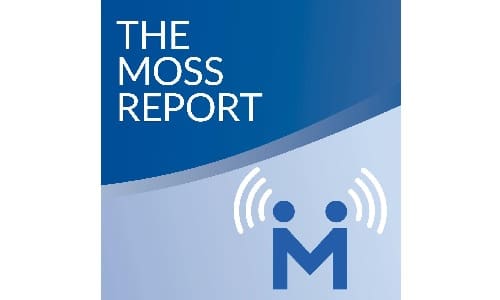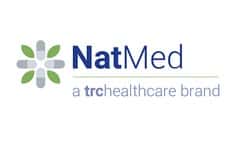This food and dietary supplement may reduce prostate cancer spread, improve survival in breast cancer, and lower the risk of several cancers.
How do experts use flaxseed?
Integrative experts provide recommendations for flaxseed in treating people with cancer. Learn more about the approaches and meanings of recommendations: Integrative Oncology Programs and Expert Guidelines ›
Clinical practice guidelines
The 2017 Society for Integrative Oncology clinical practice guidelines regarding breast cancer patients found insufficient evidence to recommend using flaxseed for quality of life or hot flashes.
Published protocols, programs, and approaches
Flaxseed is used in programs, approaches, and protocolsa package of therapies combining and preferably integrating various therapies and practices into a cohesive design for care from these integrative oncologists, drawing from both scientific research and observations from years or even decades of treating people with cancer.
Lise Alschuler, ND, FABNO, and Karolyn Gazella
Alschuler LN, Gazella KA. The Definitive Guide to Cancer, 3rd Edition: An Integrative Approach to Prevention, Treatment, and Healing. Berkeley, California: Celestial Arts. 2010.
Alschuler LN, Gazella KA. The Definitive Guide to Thriving after Cancer: A Five-Step Integrative Plan to Reduce the Risk of Recurrence and Build Lifelong Health. Berkeley, California: Ten Speed Press. 2013.
Approaches are described for certain cancer types, or along with certain conventional therapy treatments, or for particular conditions such as insulin resistance.
Uses of omega-3 fatty acids and lignans from flaxseed and flax oil:
- Elimination and detoxification
- Immune enhancement
- Reversing insulin resistance
- Breast cancer
- Colorectal cancer
- Prostate cancer
- Whole foods diet
- Peripheral neuropathy
- Cognitive difficulties
Keith Block, MD
Block KI. Life over Cancer: The Block Center Program for Integrative Cancer Care. New York: Bantam Dell. 2009.
The integrative Block Program has recommendations to people who are at different places along the cancer continuum:
- Those who’ve been recently diagnosed
- Those in treatment
- Those who’ve concluded treatment and need to remain vigilant to prevent recurrence
Uses of flaxseed:
- Core diet plan
- Anti-inflammatory
- Blood circulation
Gerald Lemole, MD; Pallav Mehta, MD; and Dwight McKee, MD
Lemole GM, Mehta PK, McKee DL. After Cancer Care: The Definitive Self-Care Guide to Getting and Staying Well for Patients with Cancer. New York, New York: Rodale, Inc. 2015.
These doctors present easy-to-incorporate lifestyle changes to help you “turn on” hundreds of genes that fight cancer, and “turn off” the ones that encourage cancer, while recommending lifestyle approaches to address each type.
Barbara MacDonald, ND, LAc
MacDonald B. The Breast Cancer Companion—A Complementary Care Manual: Third Edition. Self-published. 2016.
Naturopathic physician Barbara MacDonald provides information about breast cancer, its conventional treatment, and natural approaches to enhancing treatment, managing side effects, reducing risk of recurrence, and healthy living after cancer treatment is completed.
Neil McKinney, BSc, ND
McKinney N. Naturopathic Oncology, Fourth Edition. Victoria, BC, Canada: Liaison Press. 2020.
This book includes descriptions and uses of many natural and complementary protocols for cancer in general and for specific cancers. It also includes information on integrative support during conventional cancer treatment.
Uses of flaxseed:
- Breast cancer
- Cervical cancer
- Ovarian cancer
- Pancreatic cancer
- Prostate cancer
- Uterine cancer
- Cancer risk reduction
Ornish Diet and Lifestyle Modification Program (for prostate cancer)
Cardiologist Dean Ornish, MD, has adapted his Ornish Heart Disease Reversal Program for use by men with prostate cancer. The program includes nutrition, fitness, stress management, and love and support.
Gurdev Parmar, ND, FABNO, and Tina Kaczor, ND, FABNO
Parmar G, Kaczor T. Textbook of Naturopathic Oncology: A Desktop Guide of Integrative Cancer Care. 1st edition. Medicatrix Holdings Ltd. 2020.
This book provides information on the treatment of 24 cancers, plus the most effective treatments of the most common symptoms affecting cancer patients while they undergo chemotherapy, radiotherapy, or surgery.
Uses of flaxseed:
- Breast cancer
- Prostate cancer
Nasha Winters ND, FABNO, LAc, DiplOM, and Jess Higgins Kelley, MNT
Winters ND, Kelley JH. The Metabolic Approach to Cancer. 2017. Chelsea Green Publishing.
This book’s metabolic approach to cancer is a “naturopathic nutrition program that uses the medicinal powers of traditional foods, therapeutic diets and non-toxic lifestyle approaches as cancer counteragents and preventives.“ The program focuses on 10 terrain elements and how to assess them and bring them into balance.
Uses of flaxseed:
- Added as part of a high-fiber diet
- Sex hormone balance
Traditional medicine
Flaxseed is used in traditional Chinese medicine › and Ayurveda ›.
Other expert assessments
Moss Reports

Subscription required
“Basic science suggests that flaxseed could have a positive effect on cancer. Yet clinical research of flax in human cancer patients is lacking.”
Dosing
Dosage has not been standardized for use in cancer care, but recommendations are available from these sources.

Subscription required
General information about dosing
Find general dosing guidelines regarding natural products and supplements in Dosing Guidelines ›
References


